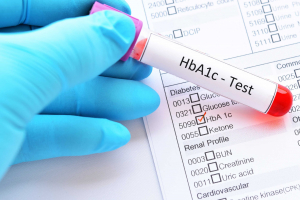Top 9 Hormones That Affect Your Weight
Hormones are important substances in your body that act as chemical messengers. They help with almost every biological function, such as metabolism, hunger, ... read more...and fullness. Some hormones have an important role in body weight because of their relationship with appetite. Here are some hormones that may impact your weight!
-
Your pancreas produces insulin, which is the body's main storage hormone. Insulin promotes the storage of glucose — a simple sugar taken from food — in muscle, liver, and fat cells for later use in healthy people.
Insulin is produced in little amounts throughout the day and in larger amounts after meals by your body. Depending on your body's current needs, this hormone then moves glucose from food into your cells for either energy or storage. Insulin resistance is a common disorder in which your cells cease to respond to insulin. Because insulin is unable to transport glucose into your cells, you will have high blood sugar. In an attempt to increase glucose absorption, your pancreas produces even more insulin. Insulin resistance has been related to obesity, which can lead to other health problems like type 2 diabetes and heart disease. Insulin sensitivity is the polar opposite of insulin resistance in the body. It means your cells are insulin-sensitive. As a result, it's a good idea to concentrate on lifestyle habits that improve insulin sensitivity.

Insuiln 
Insuiln -
Leptin is a fullness hormone that informs your hypothalamus — the part of your brain that regulates your appetite — that you're full.
Obese people, on the other hand, may have leptin resistance. This implies that the signal to stop eating does not reach your brain, leading to overeating. As a result, your body may create even more leptin until your levels reach dangerously high levels. The exact cause of leptin resistance is unknown, however, it might be caused by inflammation, gene mutations, or excessive leptin production, which can occur with obesity. Because obesity is linked to leptin resistance, it's critical to keep a healthy weight. Furthermore, evidence shows that a reduction in body fat may help in the reduction of leptin levels.
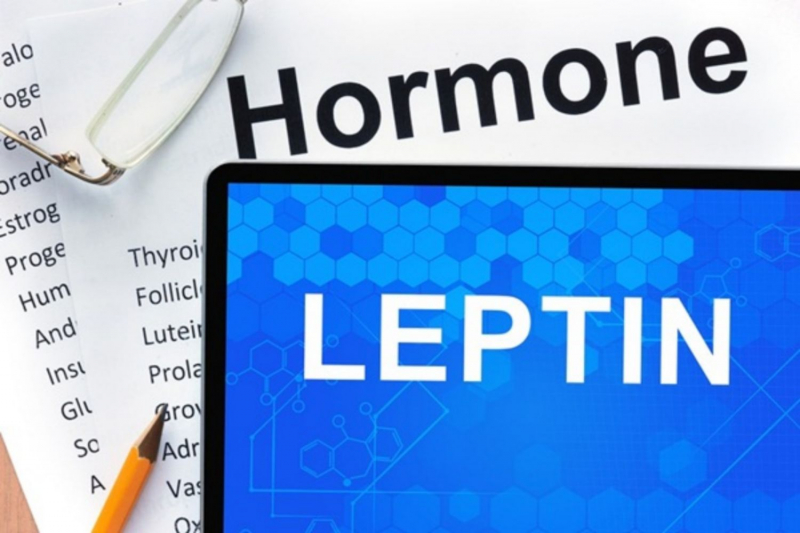
Leptin 
Leptin -
The hormone ghrelin is the opposite of leptin. It's the hunger hormone that tells your hypothalamus that your stomach is empty and that you need to eat. Its major purpose is to make people eat more.
Ghrelin levels are normally highest before a meal and lowest afterward. Obese people, oddly, have low ghrelin levels but are more sensitive to its effects, according to studies. Overeating may be a result of this sensitivity. One explanation for the difficulty in losing weight is that calorie restriction generally causes an increase in ghrelin levels, keeping you hungry. Additionally, metabolism slows down, and leptin levels drop. So it's a good idea to listen to your body and eat when you're hungry because ghrelin levels are highest before a meal.
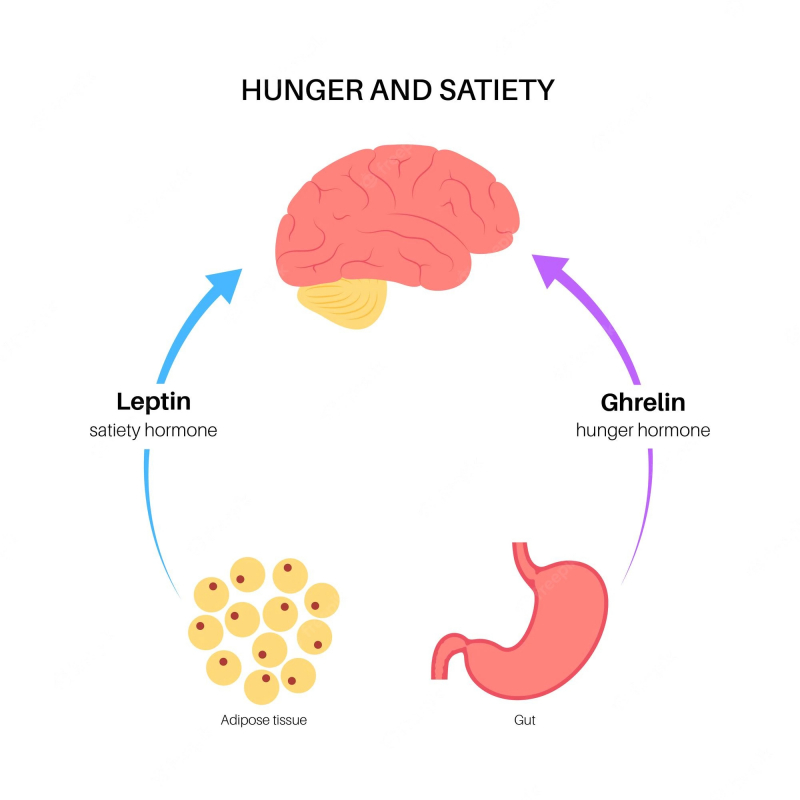
Ghrelin 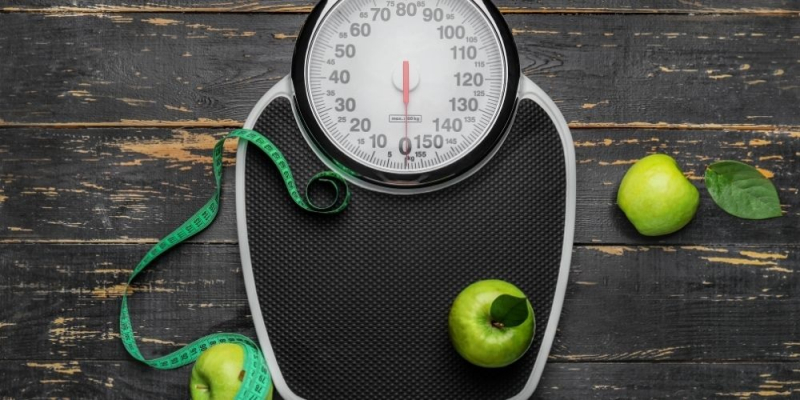
Ghrelin -
Your adrenal glands produce cortisol, which is known as the stress hormone. This hormone causes an increase in heart rate and energy levels when people are stressed.
Stress can increase food cravings for sweet or fatty foods by raising cortisol levels. Stress is linked to increases in hunger hormones, which may contribute to unhealthy food cravings. Furthermore, chronically excessive amounts can cause a variety of health problems, including heart disease, diabetes, low energy, high blood pressure, sleep problems, and weight gain. Heavy cortisol levels can be caused by a variety of lifestyle factors, including poor sleep habits, chronic stress, and a high intake of high-glycemic foods. Furthermore, obesity not only raises cortisol levels, but high levels can lead to weight increase, producing a negative feedback loop.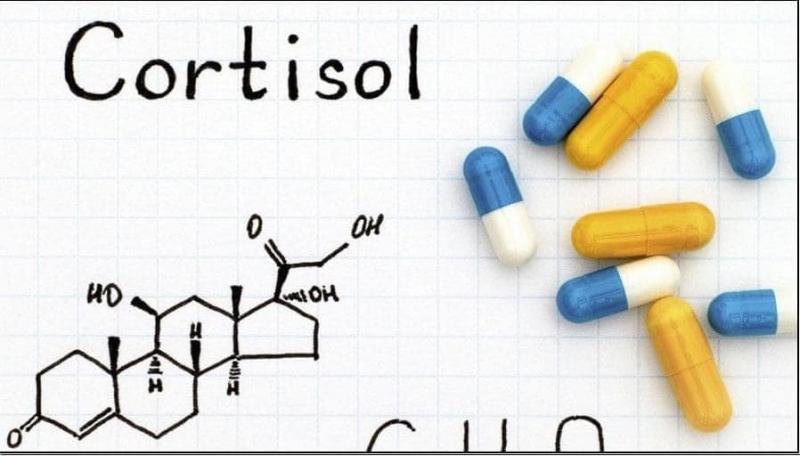
Cortisol 
Cortisol -
Estrogen is a sex hormone that regulates the reproductive system, as well as the immune, skeletal, and vascular systems in women. This hormone's levels fluctuate during various life stages, including pregnancy, nursing, and menopause, as well as during the menstrual cycle.
High estrogen levels, which are common in obese people, have been linked to an increased risk of cancer and other chronic disorders. Low levels, on the other hand, are associated with aging, perimenopause, and menopause, and can affect body weight and fat, increasing your risk of chronic diseases. Many of these health problems may be avoided by making lifestyle changes, including keeping a healthy body weight, exercising regularly or following a balanced diet.
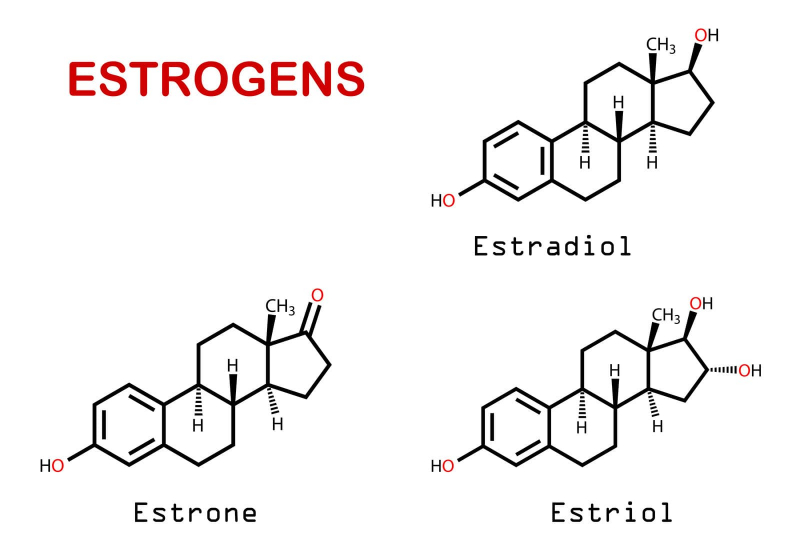
Estrogen 
Estrogen -
In response to fasting or stress, neuropeptide Y (NPY) is a hormone produced by cells in the brain and nervous system that stimulates appetite while lowering energy expenditure. NPY is linked to obesity and weight gain because it may stimulate food intake.
It is activated in fat tissue and may lead to abdominal obesity and metabolic syndrome, a condition that raises the risk of chronic diseases. According to research, the processes that cause obesity in NPY may also cause an inflammatory response, worsening health issues even more. Although additional study is needed, some studies show that regular exercise may help lower NPY levels. And high fat, high sugar diets have been shown to raise NPY levels, so you should try reducing your sugar and fat intake.

Neuropeptide Y 
Neuropeptide Y -
When nutrients enter your intestines, a hormone called glucagon-like peptide-1 (GLP-1) is produced in your gut. It is important for maintaining blood sugar levels and helping you feel full. Obese people may have issues with GLP-1 signaling, according to research. As a result, GLP-1 is added to medications to help patients lose weight and waist circumference, especially those with diabetes.
For maintaining appropriate GLP-1 levels, you can start by consuming a lot of protein. GLP-1 levels have been shown to rise when high protein foods like whey protein and yogurt are eaten. Or you can take probiotics instead, probiotics may enhance GLP-1 levels, according to a preliminary study, though more human research is needed. It's also a good idea to consult with a doctor before beginning any new supplement.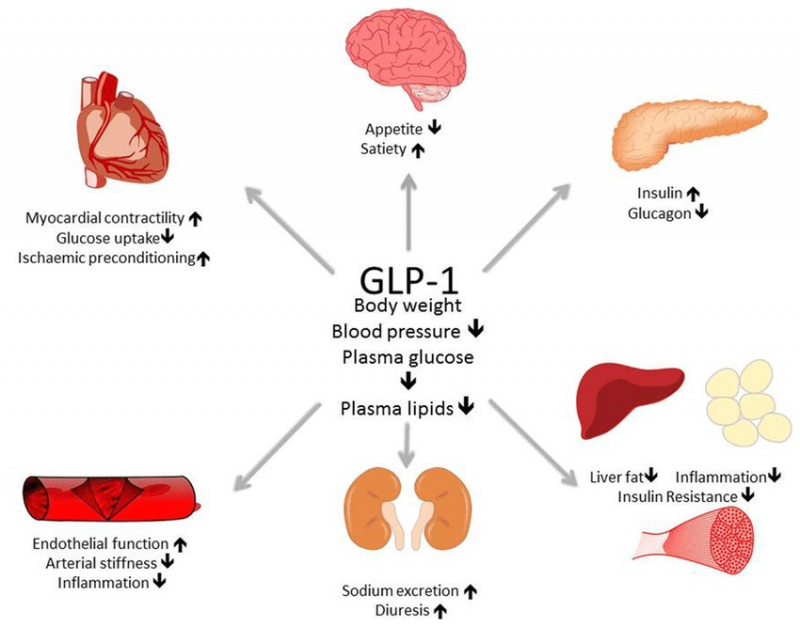
Glucagon-like peptide-1 
Glucagon-like peptide-1 -
Cholecystokinin (CCK) is a fullness hormone produced by cells in the stomach after a meal, similar to GLP-1. It helps in the production of energy, protein synthesis, digestion, and other biological activities. It also increases the production of leptin, a hormone that makes you feel full.
Obese people may be less sensitive to CCK's effects, which might contribute to chronic overeating. As a result, CCK sensitivity may be reduced even further, creating a negative feedback loop. CCK levels should be kept at a healthy level by consuming a lot of protein. According to some studies, a high-protein diet can help increase CCK levels and so fullness. While research on the subject is limited, some data suggest that regular exercise might help increase CCK levels.
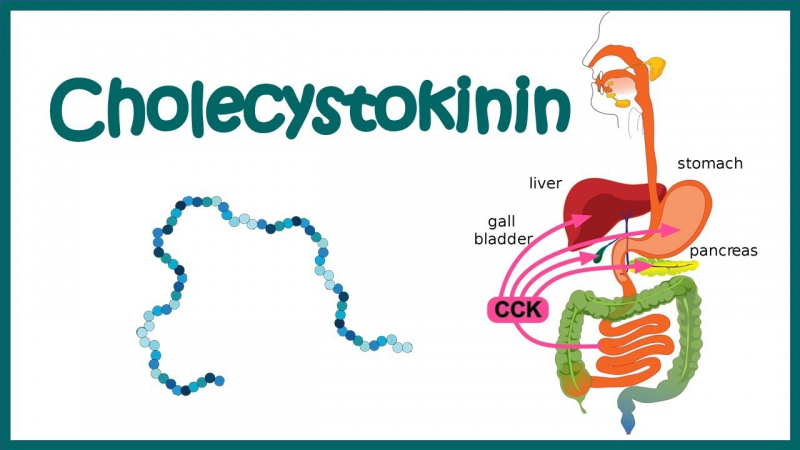
Cholecystokinin 
Cholecystokinin -
Another gut hormone that suppresses appetite is peptide YY (PYY). Low peptide YY levels are seen in obesity and before the beginning of type 2 diabetes, and both factors may lead to weight gain. Sufficient levels are thought to have a key function in reducing food intake and reducing obesity risk. There has been some research into using peptide YY as an obesity medication, with the goal of reducing the appetite of obese people.
To maintain a healthy amount of PYY in your body, you can start with maintaining a well-balanced diet. PYY levels and fullness may be improved by eating a high-protein diet. The paleo diet, which is high in protein, fruits, and vegetables, may also raise PYY levels. While there is conflicting evidence about exercise and PYY levels, being active is usually helpful to one's health.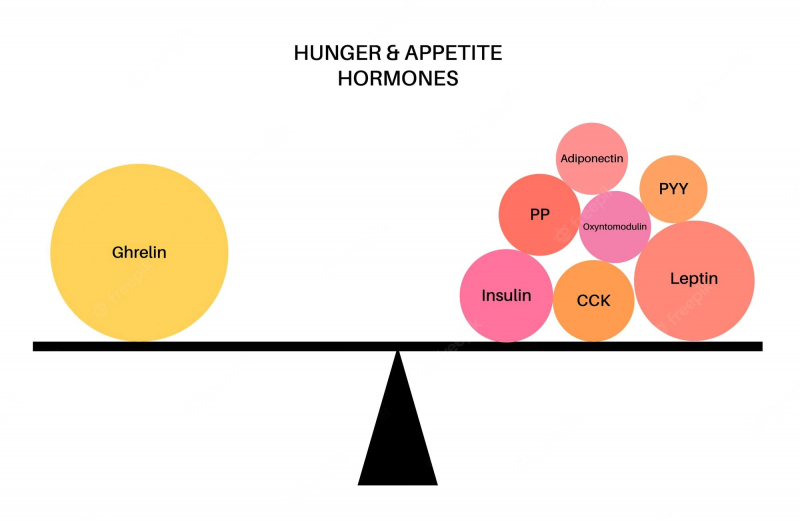
Peptide YY 
Peptide YY













